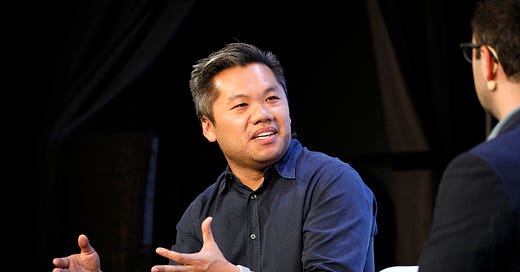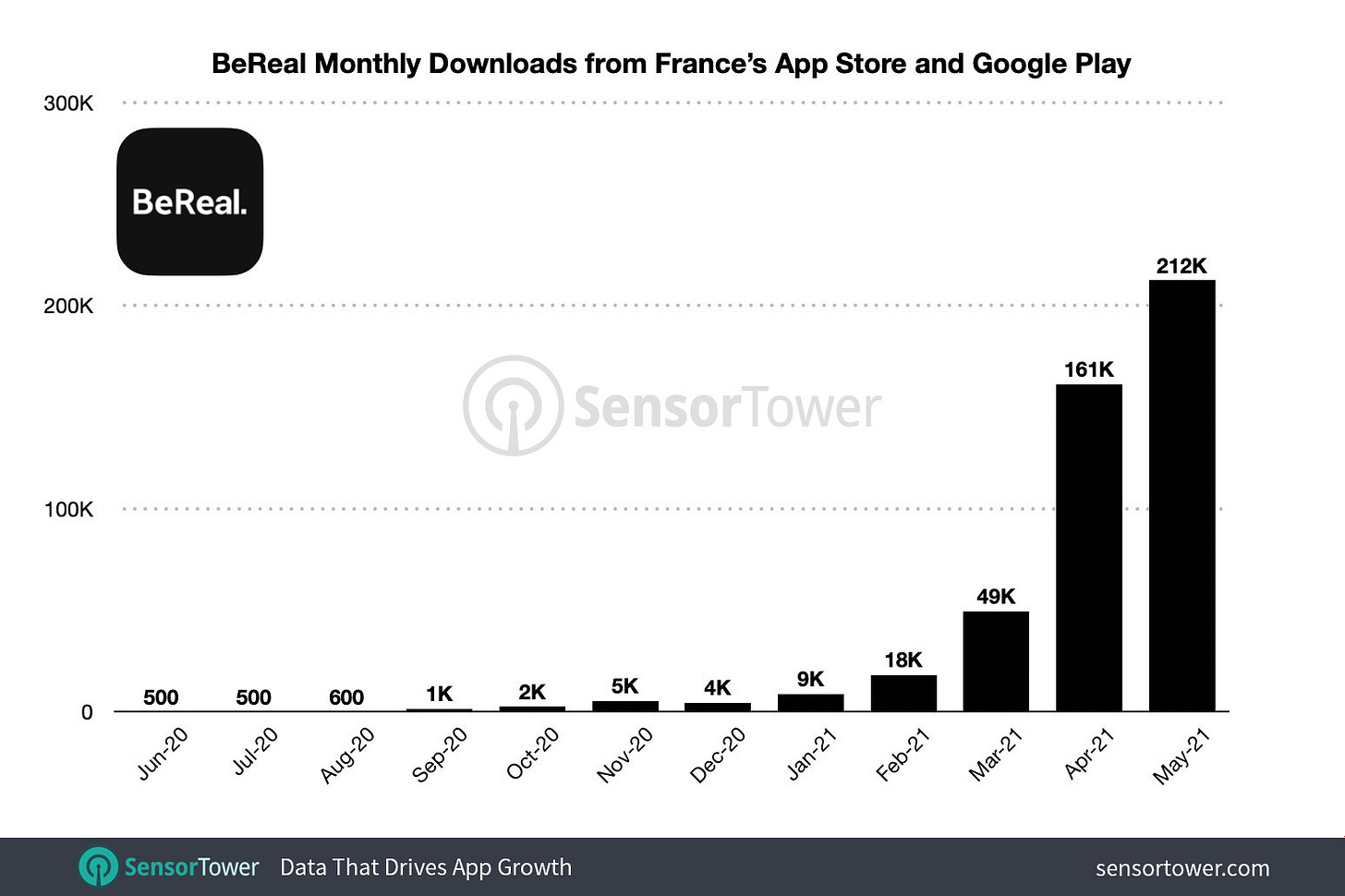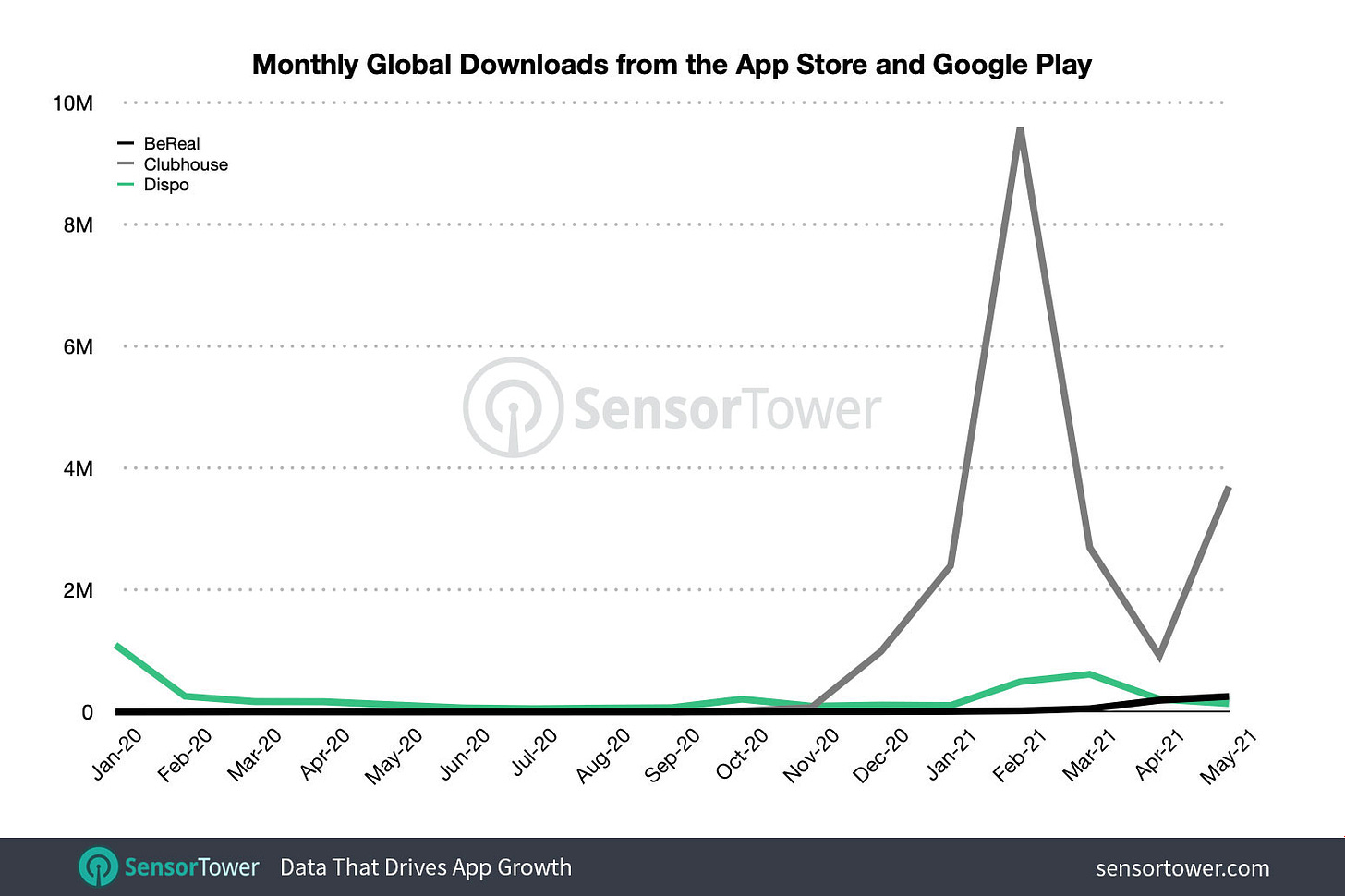SCOOP: a16z, Accel Back French Founder's Photo Sharing App BeReal
Investors chase photo apps for 'hot vax summer.'
European investors New Wave and Kima Ventures finalized their seed investment in the photo sharing app BeReal late last week. The seed investment in the two-person startup suddenly had an added impetus to close: Andreessen Horowitz’s prolific consumer investor, Andrew Chen, was ready to lead BeReal’s Series A.
BeReal founder Alexis Barreyat signed the term sheet this week, sources tell me. Andreessen Horowitz and Accel agreed to lead a $30 million investment in BeReal that values the company at about $150 million post-money. Accel partner Sonali De Rycker secured her firm a major stake in the round. DST is also participating.
Neither the seed round nor the Series A has been previously reported.
Late last year, I told you that consumer startup investing had emerged from a nuclear winter. I talked about startups like Popshop, Clubhouse, Supergreat, and Lunchclub. Since then consumer investing has only gotten more competitive as investors like Chen and Sarah Tavel race to lock down the next big app. Chen has been prolific, doubling down on his bets on Clubhouse and Substack and adding new investments like online courses company Maven, professional education company Reforge, and social platform for sports Sleeper.
I reported last week that Tavel landed an investment in viral photo sharing company TTYL. The company is the developer of the app Poparazzi, which is the fourth ranked app in Apple’s free apps chart today. Both Tavel and Andreessen partner Sriram Krishnan traveled to meet with TTYL’s founding brothers. Mike Vernal at Sequoia spoke to them over Zoom. Tavel won out.
Meanwhile, Spark Capital’s Nabeel Hyatt and Seven Seven Six founder Alexis Ohanian have to be kicking themselves. They had the right space, wrong company. Hyatt and Ohanian invested in Polaroid camera-lookalike app Dispo, which saw its star fade as its influencer co-founder David Dobrik stepped down amidst scandal. The app’s monthly installs have fallen from 1.1 million in January 2020 to 138,000 in May of this year, according to intelligence company Sensor Tower. Spark relinquished its stake in the company and Ohanian has promised to donate any profits the firm makes from the investment to charity.
Poparazzi, BeReal, and Dispo are worth paying attention to because they’re fighting on the social media incumbents’ home turf: photos. Between Facebook, Instagram, and Snap, the photo sharing space has felt impenetrable. Even companies like LinkedIn and Twitter added their own photo features. So if you want to post a picture on social media, it isn’t hard to find a place to do it.
But Poparazzi, BeReal, and Dispo show that founders and venture capitalists suddenly think they can compete with Facebook.
There are several shared tactics here. All three apps — inadvertently or intentionally — make it harder for Facebook to copy them by restricting user behavior. Poparazzi prevents users from tagging pictures of themselves. BeReal requires users to post a picture in order to see what their friends have posted. Dispo makes users wait for their photos to develop. It’s hard to imagine Instagram suddenly preventing users from tagging themselves or requiring that people post in order to keep scrolling through their feed.
There are other reasons these apps have taken off. They all gained notoriety in one form or another on TikTok. They’ve implemented features that heavy-handedly get users to engage with their apps. They all seem to put authenticity before pretense.
Or it could all be as simple as teenagers want a cool new space to hang out in all to their own. As Signal Fire investor Josh Constine wrote about Poparazzi — but which applies just as well to BeReal or Dispo — they’re the perfect apps for “hot vax summer.”
You heard it here first: Get ready for BeReal
You’d be forgiven for never having heard of BeReal. It’s only really viral in France. But the photo app is growing fast and the startup is expected to start optimizing for the United States any day now.
BeReal’s metrics are up and to the right.
BeReal founder Alexis Barreyat came out of nowhere. From 2013 to 2016, Barreyat was a student at the French coding school 42, founded by the French billionaire Xavier Niel.
After that, Barreyat, who is French, worked as a video producer at GoPro and as a freelance iOS developer. He started working on BeReal in January 2020 but didn’t immediately win over seed investors.
Then, Niel’s son started using the app, which asks users to post a photo of themselves once a day. BeReal snaps a picture with both the selfie camera and the camera on the backside of the phone simultaneously, creating an image meant to give a more realistic impression of their surroundings. The app sends a daily alert to users to post a picture. Right now, Americans who download the app receive notifications early in the morning since it’s been designed around its French users.
Niel, the sole limited partner in Kima Ventures and a founding limited partner in New Wave, flagged the company to Jean de La Rochebrochard, the managing partner at Kima and co-founder at New Wave, along with New Wave co-founder Pia d'Iribarne. The duo trekked out to Andorra, a principality bordered by France and Spain, to meet with Barreyat. The duo agreed to invest at less than 10€ million valuation.
With the seed round term sheet signed but the final negotiations still unfinished, someone seems to have bragged to American investors about the promising new social media startup. Or perhaps an American investor was obsessively monitoring the French app store rankings. Either way, American investors were suddenly clamoring for an introduction when the seed round hadn’t even been finalized. Key performance indicators began circulating.
The app’s internal metrics show daily active users climbing from below 50,000 in March to more than 300,000 in May. As of last month, most of the app’s users were in Paris and Lyon. In Belgium, the app is starting to gain popularity.
A handful of American investors talked with Barreyat. Andreessen Horowitz partner Bryan Kim, a former senior director at Snap, was particularly relentless in getting the firm in front of Barreyat.
Ultimately Andreessen Horowitz, Accel, and DST won out. Chen and De Rycker will be closely involved in the company.
Sources tell me Barreyat has already hired five new employees, bringing the company’s head count to seven. The team is frantically preparing the app for international audiences.
Quick Consumer Thoughts
Clubhouse
One big strategic question mark for Chen will be his decision to double-down on Clubhouse and Substack. Given the amount of time Andreessen Horowitz partners seem to spend on Clubhouse, there’s a certain logic to backing up the truck. The firm’s brand is already tied to the company. And I’d bet many firms would do the same if they were in Andreessen’s shoes — it’s so rare that a company discovers a new form of social network. But, of course, every social company under the sun is rushing to copy them.
We’ll never really know whether Clubhouse’s decision to launch without an Android app was the right one. But at least the recent Android launch has given Clubhouse a second life after its metrics started to fall off a cliff at the beginning of the year.
Growth Engines
Poparazzi is already infamous for leaning heavily on users’ contact lists. The app strongly encourages users to give it access to their address book and then the app immediately follows users’ contacts. Sarah Perez at TechCrunch writes, “But gaining access to someone’s full Contacts database lets Poparazzi skip having to build out features for the privacy-minded. It can simply match your stored phone numbers with those it has on file from user signups and create an instant friend graph.”
BeReal sends daily push notifications to urge users to post pictures.
Constine, the former TechCrunch writer and product guru, told me that the next generation of photo apps will push content to their users instead of waiting for them to come to a feed. “The photos come to you, not you come to the photos,” he said. Even as many apps dive into video, Constine says, “I think there will always be a place for photos because they're so inherently scannable.”
Social and Livestreaming Baked In
Every new app is trying to integrate social features and livestreaming directly into their product. Take a look at apps like Popshop, Virtual Trips, Lunchclub, Cameo, NewNew, Turntable, Whatnot, and BitClout.
One More To Watch
Gregg Spiridellis, the co-creator of JibJab, has built a video conversation app called HiHo. The 13-person company has raised a seed round from Moxxie Ventures, Resolute Ventures, and Polaris Founders Capital, according to Pitchbook. Tim Ferriss and Gary Vaynerchuk are both investors and active on the app. “Zero to one is really hard. You basically need to have a strategy where you can get to the point where your flywheel goes and the network effects kick in and our strategy is making this a valuable tool for fan engagement,” Spiridellis told me. Right now he said his app is focused on engaging its existing users. “Let's make good shit that creates real value for users. If we do that, distribution will take care of itself.”
Upcoming Sidechannel Conversation:
Today (Thursday) at 7pm ET / 4pm PT, I’ll interview Bloomberg’s Lauren Etter, author of The Devil’s Playbook: Big Tobacco, Juul, and the Addiction of a New Generation. Paid subscribers to Newcomer receive access to the Discord sever Sidechannel where the live interview will take place.







